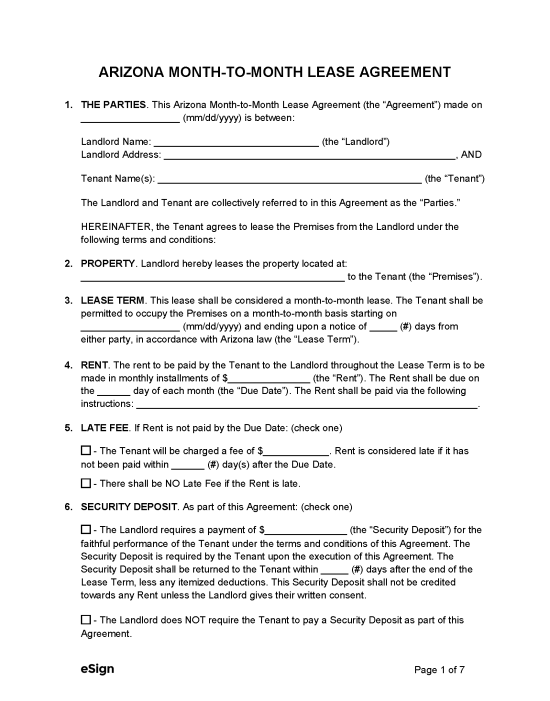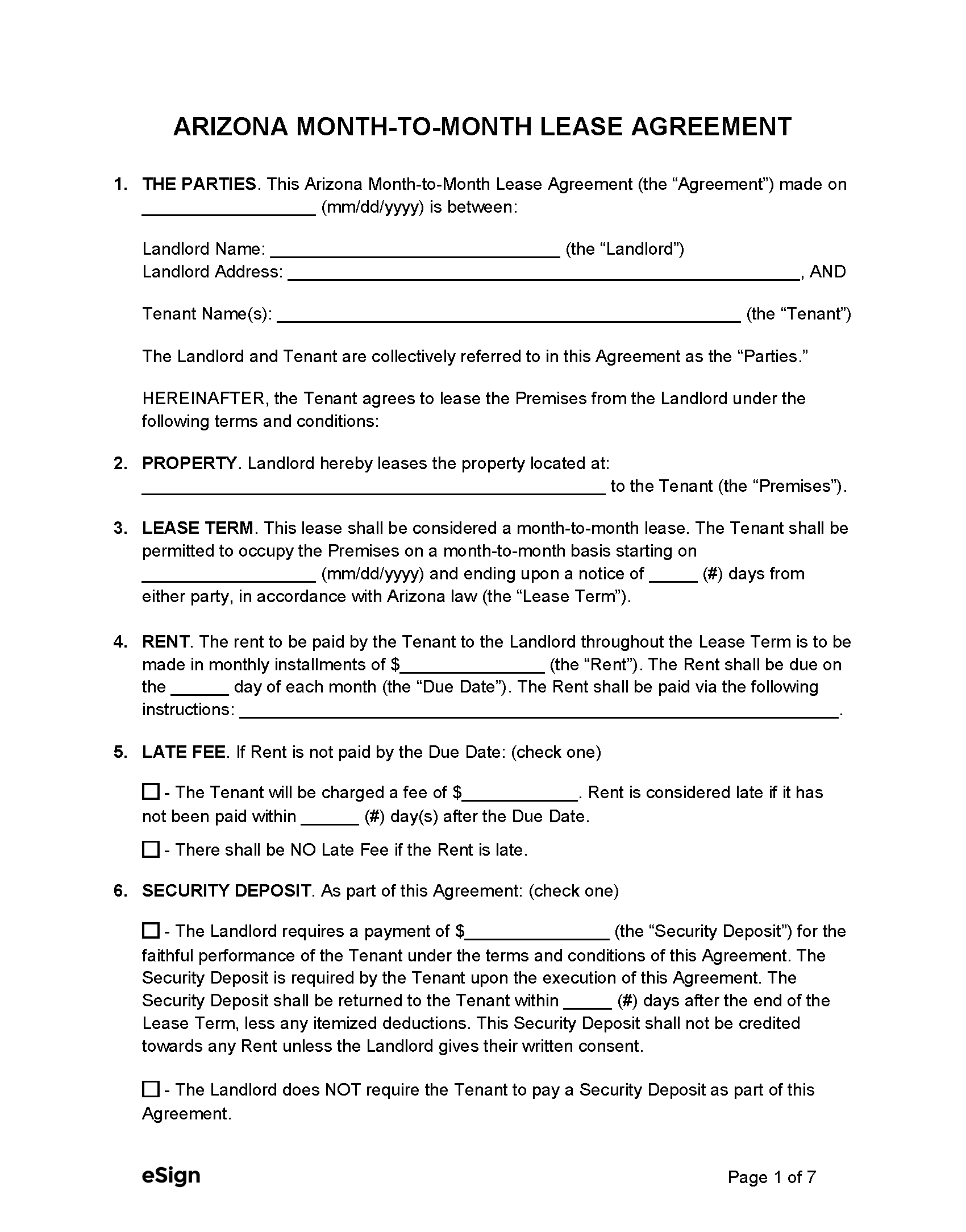Rental Application – Used to screen a tenants and select an ideal candidate.
Month-to-Month Lease Laws
- Termination Notice – A landlord or tenant must give at least 30 days’ written notice.[1]
- Rent Increase Notice – No specific statute or the notice required to increase rent. Landlords can raise the price with at least one month’s notice.
Required Disclosures (9)
- Bed Bugs – Tenants must be given educational material on how to prevent and handle bed bugs.[2]
- Fees – The purpose of any non-refundable fees collected by the landlord must be stated in writing. Any fees not stated as non-refundable will be considered refundable.[3]
- Landlord-Tenant Act – New tenants must be informed in writing that the Arizona Residential Landlord and Tenant Act is available on the Department of Housing website.[4]
- Lead-Based Paint Disclosure (PDF) – The landlord and tenant must sign this form concerning toxic paint if their rental unit was constructed before 1978.[5]
- Move-in/Move-out Condition Checklist (PDF) – A move-in form must be given to the tenant to write down the condition of the property at the start of the tenancy. They must also receive written notification that they can be present at the move-out inspection.[6]
- Names and Addresses – The landlord must provide the names and addresses of the person authorized to manage the premises and any owner of the property or person authorized to act on their behalf for service of process and receiving demands and notices.[7]
- Pool Safety Notice (PDF) – If the rental unit has a swimming pool, this form should be provided to new tenants explaining their responsibilities regarding pool safety.[8]
- Privilege Taxes – If a municipality that charges a transaction privilege tax increases that tax, the landlord may adjust the rent to compensate. If this is the case, the landlord must give the tenant at least thirty (30) days’ notice.[9]
- Utility Charges – The landlord may charge separately for gas, water, wastewater, solid waste removal, or electricity by installing a submetering system or a ratio utility system. Utilities charged separately and any administrative cost of using those systems must be stated in the rental agreement. [10]

